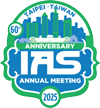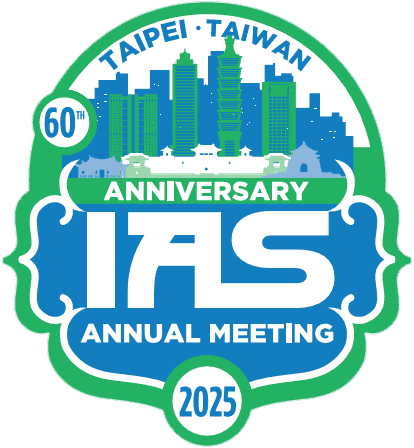The IAS Annual Meeting has a long-standing tradition of providing a platform for practicing engineers, researchers, and technical experts to present and discuss current developments and future trends in electrical technology applications. Key areas of focus include:
- Industrial power and energy systems, smart grids, energy storage systems, carbon-neutral power, and decarbonized energy systems.
- Best practices for data centers, including their design, analysis, monitoring, maintenance, safety, and operation.
- Industrial power conversion, including electric machines, industrial drives, electrified transportation systems, and renewable and sustainable energy conversion systems.
- Topologies, modeling, and control of power electronic converters, devices, and components.
- Industrial lighting systems, including sources, display technologies, and drivers.
- Fundamentals and industrial applications of electrostatics, including electro-hydrodynamics, electrostatic measurements, computation electrostatics, electrostatic precipitation and separation, coronas, and gas discharges.
- Smart manufacturing, intelligent process control, and factory automation.
- Industry 4.0 and best practices in industrial automation and control.
- Regulation and utilization of electricity for controlling industrial processes, including machinery, heating, and electrical safety.
- Industrial applications in continuous process industries, including metal production, mining, petrochemical, and others.
Call for Industry Presentations
Industry Presentations are tailored for industrial practitioners to share insights in one of the following areas:
- Lessons Learned
- Case Studies
- Best Practices
Presentations are 25 minutes long (including questions) and are selected based on abstract submissions. No full technical paper is required.
Submission Guidelines:
- Use the provided template to prepare your proposal.
- Submit your PDF proposal to: [email protected]
- Subject: “Industry Presentation: [title of the presentation]”
Presentation titles will be listed in the conference program, but presentation materials will not be published in the conference record or on IEEE Xplore. Promotional submissions will be rejected.
Important Dates:
- Proposals Due: April 1, 2024
- Acceptance Notification: April 15, 2024
Call for Special Panel Sessions
Special Panel Sessions aim to promote discussions on emerging topics relevant to the industry. These sessions focus on addressing current challenges, do not require technical papers, and are structured to last 90 minutes.
Session Guidelines:
- Include a moderator and multiple speakers (three or four).
- Panel members should not all have a single affiliation.
- The session should not promote any specific product or service.
Submission Guidelines:
- Use the provided template to prepare your proposal.
- Submit your proposal in PDF format to: [email protected]
- Subject: “Panel Session: [title of the panel session]”
Important Dates:
- Proposals Due: April 1, 2024
- Acceptance Notification: April 15, 2024
Call for (Academic) Special Sessions
Academic Special Sessions focus on emerging topics and require research paper submissions. These sessions run parallel to regular sessions and are proposed and chaired by up to two volunteer organizers.
Organizer Responsibilities:
- Encourage paper submissions to include at least five approved papers.
- Serve as track chairs and chair the session during the conference.
Special Session papers will undergo the same review process as regular papers and will be published on IEEE Xplore.
Submission Guidelines:
- Use the provided template to prepare your proposal.
- Submit your proposal in PDF and DOCX formats to: [email protected]
- Subject: “Academic SS Proposal: [title of the special session]”
Important Dates:
- Proposals Due: February 7, 2024
- Acceptance Notification: Within 3 days of submission
- Digest and Full Paper Deadlines: Aligned with regular papers
Conflict of Interest and Restrictions
Conflict of Interest: SS organizers must declare papers with potential conflicts of interest before the review process begins. A conflict arises if organizers are authors or know the authors personally.
Restrictions:
- An individual cannot be a (co-)author of more than two papers submitted to the same session.
- Papers from organizers cannot exceed 50% of the session content.

